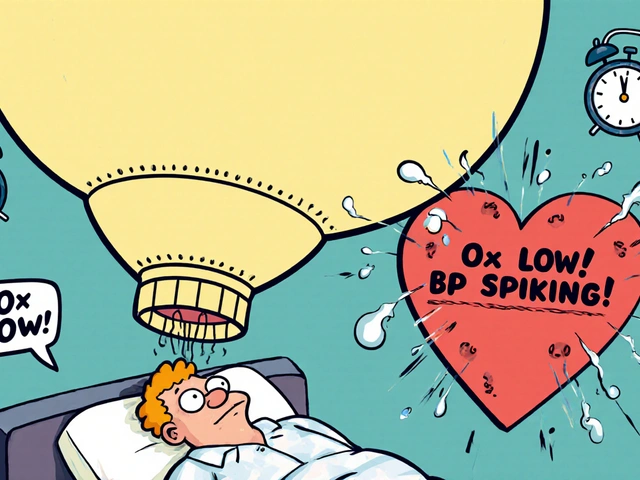Understanding Addison's Disease and its Effects on the Body
Addison's disease is a rare, chronic condition in which the adrenal glands do not produce enough cortisol and, in some cases, aldosterone. Cortisol is a hormone that plays a crucial role in managing stress, blood sugar levels, and inflammation, while aldosterone is responsible for regulating blood pressure and maintaining the balance of salt and water in the body. The insufficient production of these hormones can lead to a variety of symptoms and complications, some of which can affect sexual health and relationships.
Recognizing the Symptoms and Signs of Addison's Disease
It is essential to recognize the symptoms of Addison's disease to seek appropriate treatment and manage the condition effectively. Some of the common signs include fatigue, muscle weakness, weight loss, low blood pressure, and darkening of the skin in certain areas. In addition to these, individuals with Addison's disease may also experience cravings for salty foods, nausea, vomiting, and depression. While these symptoms may not seem directly related to sexual health, they can have a significant impact on intimacy and relationships.
The Impact of Fatigue and Muscle Weakness on Sexual Health
One of the most common symptoms of Addison's disease is fatigue and muscle weakness. This can make it difficult for individuals with the condition to engage in physical activities, including sexual intercourse. Fatigue can lead to a reduced sex drive, making it challenging to maintain a healthy and satisfying sexual relationship. Additionally, muscle weakness may result in difficulty achieving or maintaining an erection, further complicating sexual health for those with Addison's disease.
Dealing with Depression and its Effect on Intimacy
Depression is another symptom that individuals with Addison's disease may experience, and it can significantly impact sexual health and relationships. Depression can cause a loss of interest in activities that were once enjoyable, including sex. A decreased sex drive can create tension and dissatisfaction in a relationship, which may lead to further emotional distress. It is crucial to address and treat depression in individuals with Addison's disease to improve their overall quality of life and maintain healthy relationships.
Low Blood Pressure and its Role in Sexual Dysfunction
Low blood pressure, or hypotension, is a common symptom of Addison's disease that can affect sexual health. This condition can cause dizziness, lightheadedness, and even fainting, making it difficult to engage in sexual activities safely. Furthermore, low blood pressure can lead to erectile dysfunction in men, as adequate blood flow is essential for achieving and maintaining an erection. Addressing low blood pressure is crucial for individuals with Addison's disease to improve their sexual health and overall well-being.
Addressing Weight Loss and Body Image Concerns
Individuals with Addison's disease may experience unexplained weight loss as a result of their condition. This can lead to body image issues and feelings of unattractiveness, which may affect sexual confidence and intimacy in a relationship. It is essential to encourage open communication with one's partner and seek professional support if needed to address and overcome these concerns.
Managing Stress and its Impact on Sexual Health
As cortisol plays a vital role in managing stress, individuals with Addison's disease may have difficulty coping with stressors in their daily lives. High levels of stress can negatively impact sexual health, leading to a decreased sex drive and difficulties with arousal and orgasm. Finding effective ways to manage and reduce stress is crucial for individuals with Addison's disease to maintain a healthy sex life and strong relationships.
Treatment Options for Addison's Disease and Improving Sexual Health
Appropriate treatment for Addison's disease can significantly improve sexual health and relationships. The primary treatment involves hormone replacement therapy to restore the levels of cortisol and aldosterone in the body. By addressing the underlying cause of the symptoms, individuals with Addison's disease can experience improved energy levels, reduced depression, and better overall well-being, leading to a healthier sex life and stronger relationships.
Supporting a Partner with Addison's Disease
If your partner is living with Addison's disease, it is essential to provide support and understanding as they navigate the challenges of their condition. Educate yourself about the disease, its symptoms, and its impact on sexual health to foster open communication and empathy. Encourage your partner to seek appropriate treatment and work together to find ways to maintain a healthy, satisfying sexual relationship despite the challenges Addison's disease may present.



